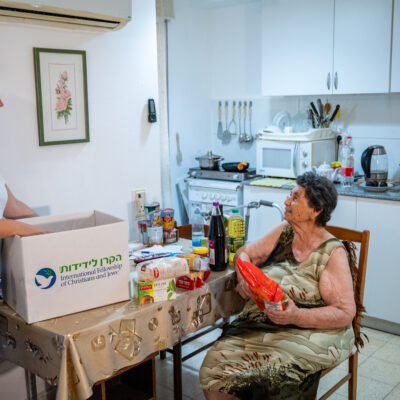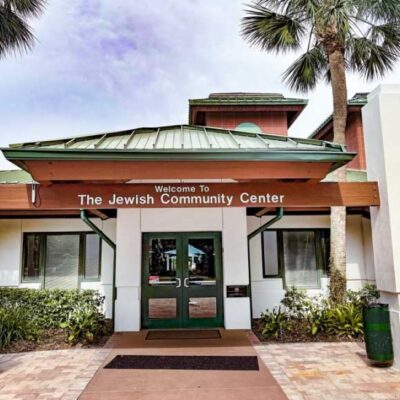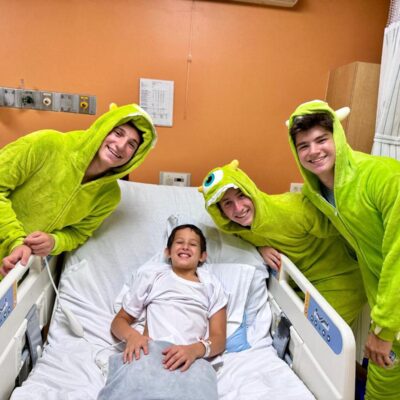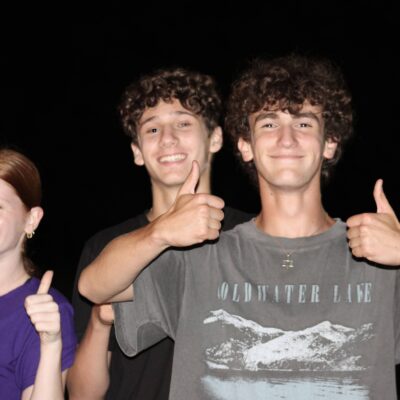Opinion
READERS RESPOND
Teens need opportunities for inspirational, judgement-free learning and mentorship, both inside and outside of school
We are grateful to be part of this important conversation sparked by Hillel David Rapp’s article, “Jewish education’s double payment problem — and a creative solution,” published last Thursday in eJewishPhilanthropy. The piece raises critical questions about how our community funds Jewish education and recognizes the mission of organizations like NCSY. For that acknowledgment, we are thankful.
At the same time, we believe the framing of Jewish inspiration as something that can be streamlined or outsourced overlooks something essential: the spiritual connection of a Jewish teen is not a commodity to be optimized — it is precious, fragile and deeply individual. Moreover, what might be perceived or described as “redundancy” is in fact an example of the type of cooperation and congruence that is critical to the success of our communal mission.
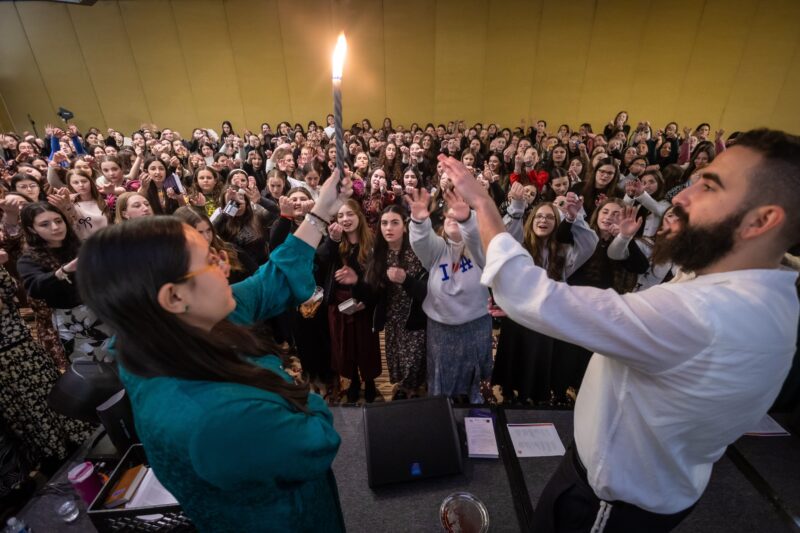
Courtesy/NCSY
Attendees at 4G Convention, NCSY's annual gathering for day school teens, participate in the NCSY Havdalah experience.
Rapp suggests dividing Jewish education into two tracks: functional academic learning during school hours, and informal, inspirational experiences run by organizations like NCSY afterward. While this acknowledges NCSY’s expertise, it overlooks how inspiration truly works. Teens do not switch their hearts on and off with the school bell, and their growth does not fit neatly into separate boxes. The most powerful connections often emerge where academic and inspirational moments intersect. NCSY already partners with yeshiva day schools in New Jersey, New York, Chicago, Los Angeles, Toronto, Silver Spring, Boston, Houston and more, delivering informal programming and relatable role models that complement classroom learning rather than replacing it. These experiences and mentors work best when they overlap and reinforce one another, each amplifying the impact of the other.
Today’s teens are navigating extraordinary challenges. They are growing up in a world of constant distraction, surrounded by social pressures, and too often encountering hostility simply for being Jewish or standing with Israel. These realities make their spiritual development more urgent than ever. In such a climate, inspiration is not a luxury — it is a lifeline. And yet, we must face a hard truth: as a community, we are not sufficiently succeeding in keeping our teens connected. The years following high school are marked by a staggering rate of disengagement from Jewish life. This should serve as a wake-up call that the solution is not to consolidate inspiration, but to multiply it — in every setting where a teen might encounter it.
At NCSY, we know that real transformation happens in relationships. Our approach is not limited to classrooms or structured after-school programs. It thrives in the personal, one-on-one mentorship between teens and advisors — in the late-night Shabbaton conversation, the heartfelt text when a teen is struggling, or the coffee shop meeting where a young person begins to open up about their relationship with God. These are the sacred moments where connection and confidence take root.
What makes NCSY’s approach unique is that these relationships unfold in judgment-free spaces where teens feel safe to be themselves, to wrestle with questions and to explore their Jewish identity at their own pace. This environment of trust empowers teens to take ownership of their journey in a way that is often difficult to replicate at school or at home, where expectations and pressures may weigh heavily. By giving teens agency and voice in their growth, NCSY enables them to discover a Judaism that is personally meaningful and enduring.
Beyond our school-year efforts, there is an essential component of our work that cannot be overlooked: the summer experience that works symbiotically with the school year. Summers with NCSY — whether in Israel or across the globe — are immersive journeys where teens live their Judaism fully, build deep friendships and strengthen their identity in ways that resonate long after the season ends. These experiences do not replace school learning; they amplify it. They provide a continuum of growth, where inspiration is sustained year-round and where teens return to their classrooms empowered to lead, to question and to own their Jewish story.
We deeply value the vital role schools play, as well as the critical involvement of parents and communities. Jewish education is strongest when these partners work together — when schools provide academic rigor, families instill ideals and organizations like NCSY create relational spaces that connect heart to mind, and each establishment reinforces the messages and values of the others. It truly takes a village to raise teens who are not only knowledgeable but also inspired to live proudly as Jews. These institutional categories are separated by the softest and most flexible of dividing lines. Each communal institution provides support in all areas, not just their own specialty.
Our success is measured not independent of schools, synagogues or homes. Our accomplishments are only as strong as their reflection in those other areas in a teen’s life. Jewish teens need more resources, not fewer, to meet them where they are and to help them flourish. NCSY is proud to partner with schools and communities to ensure every teen has the relationships and opportunities they need to thrive.
The mission we carry is not about redundancy or budgets; it is about souls. Our work is to bring Jewish teens closer to their Judaism, to help them understand their place in the ongoing story of the Jewish people, and to empower them to live with purpose and pride. No spreadsheet can measure that impact — but our teens, and the vibrant Jewish future they are building, speak for themselves.
Rabbi Micah Greenland is the international director of NCSY, and Rabbi Moshe Benovitz is the organization’s managing director of day school educational excellence.

 Add EJP on Google
Add EJP on Google
